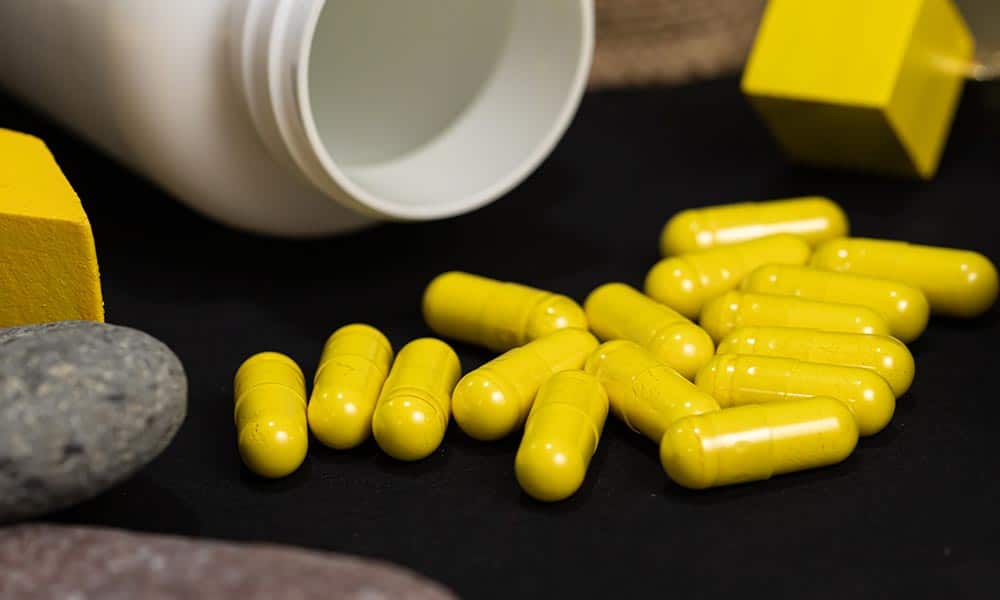
Does Gabapentin Cause Constipation?
Key Points
- Constipation can occur with gabapentin, but it is not among its most common side effects.
- Gabapentin is FDA-approved to treat postherpetic neuralgia (a type of nerve pain after shingles) and partial-onset seizures; the extended-release form (Horizant) is approved for restless legs syndrome.
- Gabapentin is FDA-approved for partial-onset seizures in patients aged 3 years and older, and may be used off-label for other seizure types.
- Gabapentin may be recognized by its brand names Horizant, Gralise, and Neurontin, though a generic form of the drug is also available.
- Common side effects include stomach issues, fatigue, memory problems, and weight gain.
- Serious side effects of gabapentin may include signs of an allergic reaction, seizures, and extreme drowsiness.
- Gabapentin carries a risk of suicidal thoughts and behaviors that affects about 1 in 500 people taking this medication.
- If you or a loved one is experiencing suicidal thoughts, call or text 988 to reach the 988 Suicide & Crisis Lifeline.
- If you stop taking gabapentin abruptly, you may experience withdrawal symptoms such as nausea, anxiety, pain, and trouble sleeping.
- Gabapentin is increasingly being abused by people who take it at higher doses or mix it with opioid drugs, which can cause worsening of mild side effects like constipation and present risks such as addiction and overdose..
- Signs of a gabapentin overdose include extreme drowsiness, double vision, blurry vision, and diarrhea.
- There are other causes of constipation, including lack of exercise, dehydration, and insufficient dietary fiber.
Gabapentin can cause constipation as a side effect. However, this is uncommon. It can also cause other stomach problems, including heartburn, nausea, and vomiting.
There are other possible causes of constipation besides medications. For example, opioid use itself can cause constipation. Talk to your doctor if you experience any serious side effects or side effects that don’t go away after taking the medication for a few days.
What Is Gabapentin?
Gabapentin is a prescription drug approved by the FDA to treat nerve pain after shingles. Gabapentin is FDA-approved for adjunctive treatment of partial-onset seizures (≥3 years old); other seizure uses may be off-label. It is part of a class of medications known as gamma-aminobutyric acid (GABA) analogues. Gabapentin may also be known as the brand names Neurontin, Gralise, and Horizant. [1]
Side Effects of Gabapentin
Many people experience unwanted side effects when taking gabapentin. Some side effects are mild and might not be dangerous. Others are more severe and could pose a threat. Talk to your doctor about any side effects you experience when taking gabapentin.
Common Side Effects of Gabapentin
Constipation is considered one of the most common side effects of gabapentin. Other side effects you might experience as a result of taking gabapentin include: [2]
- Drowsiness
- Blurry vision
- Double vision
- Anxiety
- Headache
- Dry mouth
- Diarrhea
- Nausea
- Problems with memory
- Dizziness
- Fatigue
- Heartburn
- Unusual thoughts
- Unsteadiness
- Weight gain
- Fever
Many of these common side effects of gabapentin could be mild. If they bother you or continue for more than a few days, it’s important to tell your healthcare provider.
Serious Side Effects of Gabapentin
Some side effects of gabapentin can be serious, including: [3]
- Extreme drowsiness
- Hoarseness
- Difficulty swallowing
- Trouble breathing
- Bluish skin, lips, or fingernails
- Confusion
- Skin rash
- Itchiness
- Swelling of lips, tongue, face, throat, or eyes
- Hoarseness
Call your doctor or 911 if you experience any of the severe side effects of gabapentin listed above. You can also call the poison control helpline.
Gabapentin Suicide Risk
Another side effect of gabapentin that could be considerably more serious involves suicidal thoughts and behaviors. Clinical studies suggest that about 1 in 500 people who take gabapentin will experience suicidal ideation. [4] Sometimes, this side effect can appear as early as a week after starting gabapentin treatment. There may be signs to look for that a loved one is experiencing this dangerous side effect, including: [5]
- Agitation
- Restlessness
- Anger management problems
- Violent or aggressive behavior
- Panic attacks
- Impulsive behavior
- Trouble sleeping
- Manic behavior
- Talking about hurting oneself
- Talking about death or suicide
- Giving away possessions
- New or worsening anxiety or depression
- Mood swings
- Unusual changes in behavior.
If you notice any of these signs in a loved one, contact their healthcare provider if possible (or urge them to). You can also call or text 988 to reach the 988 Suicide and Crisis Lifeline.
Withdrawal Symptoms of Gabapentin
Experiencing unwanted side effects from a medication may make you want to stop taking it. However, it’s important to notify your doctor before you stop taking a prescription medication like gabapentin. Your healthcare provider may recommend tapering your dose instead of stopping treatment abruptly. Doing so could prevent uncomfortable withdrawal effects such as: [6]
- Nausea
- Pain
- Sweating
- Difficulty falling asleep or staying asleep
- Anxiety
Experiencing withdrawal symptoms when trying to stop taking gabapentin and other drugs can be a barrier to recovery for people who have a substance use disorder. Substance use and rehabilitation counselors at treatment centers around the nation are trained to deal with this and other obstacles facing those with SUD. In some cases, medication-assisted treatment may be available to help manage withdrawal symptoms.
Gabapentin Abuse and Constipation
Historically, gabapentin hasn’t been considered an addictive drug. It’s not on the DEA’s list of controlled substances. However, there has been a recent and disturbing trend involving people using gabapentin to enhance the effects of other illicit drugs, especially opioid drugs. This has led to several states in the U.S. classifying it as a controlled substance according to their state laws.
People who take gabapentin in higher doses or use it in addition to opioids may be at higher risk of experiencing unwanted side effects, including constipation. Of course, this is a minor concern compared to other risks of combining these medications, such as polysubstance use disorder, overdose, and death.
Gabapentin Overdose Symptoms
It is possible to overdose on gabapentin. This risk increases if you abuse gabapentin, take it in higher doses than prescribed, or mix it with opioid drugs. Signs and symptoms of a gabapentin overdose may include: [7]
- Severe drowsiness
- Double vision
- Slurred speech
If you or a loved one is experiencing these symptoms after taking gabapentin, seek emergency medical attention. You can also call the poison control helpline.
Other Causes of Constipation
If you’re experiencing constipation, there could be other factors to consider besides medications. Constipation is a common condition defined clinically as having difficulty passing stool or having fewer than three bowel movements per week. Some of the primary causes of constipation include: [8]
- A sedentary lifestyle with little to no exercise
- Not using the bathroom when you have to go
- Not drinking enough water or other fluids
- Lack of dietary fiber
- Opioid pain relievers
If you’re experiencing constipation, there may be some things you can try at home to relieve this condition. If symptoms persist, it’s best to contact a healthcare provider.
Ways to Relieve Constipation
If gabapentin affects you by causing constipation, it could be helpful to tell your doctor. If the side effect is severe, they may want to switch your medications or prescribe another medication to treat constipation. In the meantime, there are some home remedies you can use to relieve this uncomfortable side effect: [9]
- Stay hydrated. Dehydration can cause or worsen constipation. Be sure you’re getting enough fluids during the day. Water may be best, but other beverages and foods can help, including watermelon, popsicles, fruit juice, vegetable juices, and clear soups.
- Try an enema.
- Eat fiber-rich foods such as whole grains, wheat bran, and vegetables.
- Try a fiber supplement like Metamucil or Citrucel.
- Use stool softeners such as Docusate or lubricants like mineral oil.
Seek Addiction Treatment
Constipation is one potential side effect of gabapentin. If you’re abusing gabapentin by taking it in high doses or mixing it with opioid drugs, your risk of unwanted side effects, including constipation, is significantly higher. It’s also important to consider the more serious risk of abusing these drugs, including respiratory depression and fatal overdose. Fortunately, substance abuse and recovery treatment are available. You don’t have to face the forces of abuse and addiction alone. Help is just a call away.
Frequently Asked Questions About Gabapentin and Constipation
What is the most common side effect of gabapentin?
Many people report drowsiness as a predominant side effect of gabapentin. Extreme drowsiness could be a sign of a gabapentin overdose.
Can I take a laxative with gabapentin?
Yes, but if you take an antacid like Maalox or Mylanta, make sure there are at least two hours between the doses of these medications and gabapentin. [10]
Is Gabapentin an opioid or narcotic?
No. Gabapentin is a gamma-aminobutyric acid (GABA) analogue used to treat nerve pain and certain seizures. On the federal level, it is not classified as a controlled substance. However, several individual states have regulated it due to recent trends of abusing gabapentin by taking it in high doses or mixing it with opioid drugs.
Sources
[1] Cleveland Clinic. (2025g, June 26). Gabapentin: Uses, side effects, dosages, Interactions & More. Cleveland Clinic. https://my.clevelandclinic.org/health/drugs/21561-gabapentin
[2] [3] [4] [5] [6] [7] [10] U.S. National Library of Medicine. (n.d.-f). Gabapentin: Medlineplus drug information. MedlinePlus. https://medlineplus.gov/druginfo/meds/a694007.html#side-effects
[8] Mayo Foundation for Medical Education and Research. (2025b, April 15). Constipation. Mayo Clinic. https://www.mayoclinic.org/diseases-conditions/constipation/symptoms-causes/syc-20354253
[9] Restivo, J. (2023, August 10). 8 ways to get constipation relief. Harvard Health. https://www.health.harvard.edu/staying-healthy/8-ways-to-get-constipation-relief


